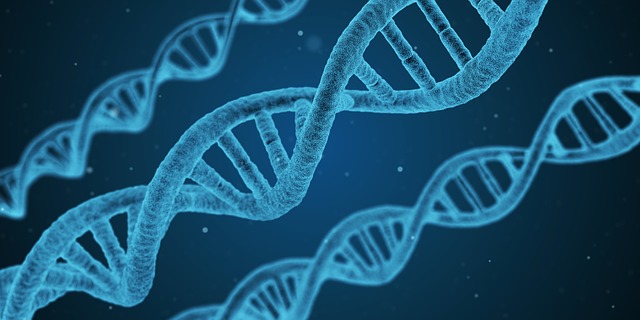It doesn’t take a lot to see why some people are scared of bioengineering and genomics. We’re talking about humans tampering with the very building blocks of life — a development that isn’t minor in the grand scheme of things, particularly if we allow science to take genetic manipulation to places heretofore reserved for dystopian science fiction novels.
At the same time, it’s incredibly hard to resist the fruit on the tree. The following infographic from University of California Riverside shows what bioengineering could do to eradicate diseases.
Online Master of Science in Engineering
One gene editing technique scientists are exploring is called preimplantation genetic diagnosis (PDG). Bioengineers extract a single cell from an embryo with the same process they would use for in vitro fertilization (IVF). Through genomic analysis, they determine which cells have genetic disorders that lead to defects. They could potentially remove these cells from embryos to eliminate the likelihood of diseases. But they could also use the same process to predetermine a child’s gender.
Human germline engineering (HGE) is another possibility on the table. Scientists analyze which cells transfer faulty genetic information, via sperm and ova, to offspring. Next, bioengineers would edit out the faulty genes so that people can’t pass on a disease like glaucoma, a disease influenced by heredity that can cause blindness.
Furthermore, bioengineers can genetically modify mosquitoes to prevent blood-borne diseases like malaria, zika, dengue, chikungunya, and yellow fever. One technique involves manipulating genetic information so that mosquitoes will only give birth to males. Another technique the FDA is pursuing involves genetically engineered mosquitoes that transmit a deadly gene to offspring, effectively killing them before they can fly. Another technique, spearheaded by the International Atomic Energy Agency, involves sterilizing male mosquitoes and releasing them back into the wild.
Genetically modified mosquitoes, human germline engineering, and preimplantation genetic diagnosis are just a few of the bioengineering advances that will affect the future of medicine. It’s feasible that our ability to modify genes could create a superhuman population immune to diseases and able to heal at astonishing speed. But there are some downsides that may limit us from adopting bioengineering to its fullest.
Ethical Issues and Problems
At its core, bioengineering relies on genomics, which is concerned with the structure, function, evolution, and mapping of genomes. Bioengineers wouldn’t know anything about genes if it weren’t for genomics, but, as Maryville University points out, genomics is plagued by cyber security concerns.
Cyber Security
One such concern that applies to bioengineering is the possibility that hackers might access genetic information, which is stored as data on the cloud. Terrorist organizations or enemy governments could use this information for biological attacks or bioterrorism, meaning they could strategically reintroduce diseases that bioengineering has worked to eradicate.
Another concern is the possibility of people discriminating against others — or targeting them — based on their genetic profile. Individuals whose genes have not been bioengineered to superhuman standards could face discrimination from employers, insurers, and other concerned parties. At the same time, they could be targeted by marketers for companies seeking to make money off of their predicament.
Even though researchers anonymize people’s genetic information to protect their privacy, hackers may be able to connect the dots and trace this information back to a person’s identity. In that case, hackers could steal your identity in the most literal sense of the word, because your genetic information is the essence of your identity.
Class Discrimination
In the future, people could potentially use bioengineering to select for preferred genes in their children. However, the cost of this type of procedure would be very high, which presents the scary possibility of an upper class that uses money and medicine to engineer genetically superior offspring. In this scenario, anyone who doesn’t have enough money would be left behind in the race to create superhuman citizens.
Safety
According to the National Human Genome Research Institute (NIH), safety is the primary concern. Germline editing (HGE) is the main process up for debate because CRISPR, a gene editing tool, is a working technology on the market that bioengineers could use right now in attempts to edit defects out of parents.
The two main issues are accuracy and unintended effects. Bioengineers could edit the wrong genes due to a lack of knowledge about the interdependency of cells. There could also be instances in which the edits simply don’t take during the transfer of DNA from parents to offspring.
Even further, if gene editing is highly regulated — as it should be — people could seek out back-alley clinics operating illegally in the U.S., or in unregulated countries, and the editing could have unintended side effects that carry on to future generations.
Informed Consent
In the case of germline editing, people would be editing their genes in such as way as to affect health outcomes for unborn children. Critics worry that unborn children would be victims who haven’t had the opportunity to give their consent. Proponents, however, argue that parents make decisions for their children all the time without their consent.
The idea of the unborn child as a victim of germline editing stems from the fact that we don’t know exactly how such tampering could hurt people. This extends to the parents, as they could be giving their consent to a procedure the outcome of which is questionable.
The final blow here could be the fact that, although parents make decisions for their kids all the time, those are environmental decisions, and ultimately the child can choose to rebel. With gene editing, the decision is permanent — the child can’t alter it.
The Future of Medicine
The medical world is already going down this path. According to American Scientist, bioengineers are using gene editing not just on mosquitoes, but on mice so that they can’t transmit Lyme disease to ticks. Scientists are also working on somatic gene editing, which would isolate single genes that cause cystic fibrosis, Huntington’s, and sickle cell disease.
In a word, the scientific and medical communities agree we should be careful. Bioengineering and gene editing could have some real benefits, but the risks could greatly outweigh them. Genes are the major frontier for medicine; however, progress will be slow until we achieve certainty and see a major breakthrough.










